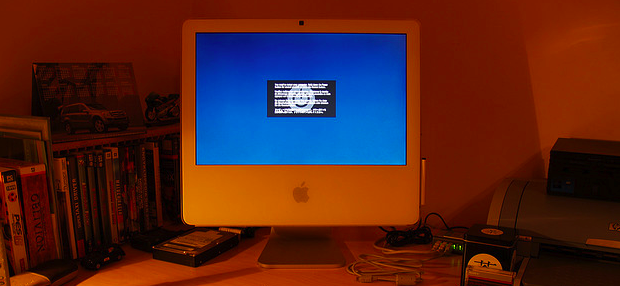Five reasons why the PC is not dead

Last week, one of the inventors to the personal computing revolution of over 30 years ago -- said that it was time to move beyond and away from the PC.
But as PC sales continue to retain momentum -- and tablets and smartphones hogging the consumer limelight -- one has to question whether the PC is really on its last legs, or whether we are simply classifying the traditional computer as other things.

After churning over the reasons in my head over the weekend, I can think of five solid reasons why the PC is not dead. And, the PC will continue to dominate the computing industry, at very least, for the end consumer and enterprises.
1. PCs can be incredibly cheap, and emerging markets rely on this.
Macs are not cheap, I grant you this, especially from the student perspective. PCs -- or rather computers that are not Macs -- can be vastly cheaper for what they offer.The Mac vs. PC adverts by Apple attempted to differentiate the two, but in reality it falls down to the operating systems that people use. In short, Macs are PCs too.
Emerging markets may never see a Mac, because of the price. But for those in low-income areas, PCs can be as slim or as expensive as you want them to be. Even down to the operating system, for those who live in deprived areas of the world, Linux is a strong, free and viable option, and is just as easy as Windows or Mac OS X to use.
2. PCs are expandable and are designed to be built-upon.
The very beauty of the PC is that there is a sliding scale of technologies involved. Expandable in nature, traditional PCs can evolve into computers, which have been added to, slimmed down and modified beyond repair.In theory, a PC need never be replaced. It's one of the reasons why there are so many traditional PCs compared to Macs -- which frankly rarely need replacing at all.
A dual-monitor display with a productivity breathing out from both screen, cannot even compare to BlackBerrys or iPhones. Unlike a car, a computer can have it chassis ripped out, modified and made better.
3. Tablets are only the next-generation of PCs.
Today, and every day, we are redefining what a PC is. Nowadays, a tablet is just as much a PC as a desktop computer is, as what a smartphone is to a tablet. Different in size, it does not mean a reduction in productivity per se.What we are lacking nowadays is a crucial definition of what a PC is.
A PC with a camera and a microphone, integrated or otherwise, makes it a 'media center PC'. It doesn't make it any less of a PC because it has additional peripherals. Instead, it bolsters the experience.
What we are seeing is a convergence of devices and peripherals. Just because the user-experience differs from devices, does not make it any less than good for what it is -- and isn't intended for.
4. The desktop experience is still a crucial part of the office workplace.
Tablets are great for on the go, and smartphones keep us connected to the world while we are away.But we're still tethered to our desks -- and most of us do not want to move.
But on a psychological level, having a traditional PC fixed to a desk -- in a home office or at the office -- keeps us confined to one workspace. Surprisingly, it allows us to be productive and "in the zone", whilst equally healthily detached and away from work when we are not within the proximity of productivity.
5. PCs are still the world's 'looking glass' to the world.
Only last week I discussed the ongoing Mac vs. PC debate, and all but negating it. Nearly everything is browser based anyway.If this is the case -- and I believe that it is -- then the traditional PC and evolved devices, from tablets to smartphones, are merely drones to the slave that is the wider web.
But it is not just limited to the web. Personal productivity and applications rely on PCs. No matter how often you use your mobile device or tablet, nothing will truly replace the standard QWERTY-keyboard at your desk.
Without the PC -- whether it takes form as a tablet or a traditional desktop experience -- then the web may as well not exist. Sales for Microsoft Office would go through the roof; I joke.
Related content: